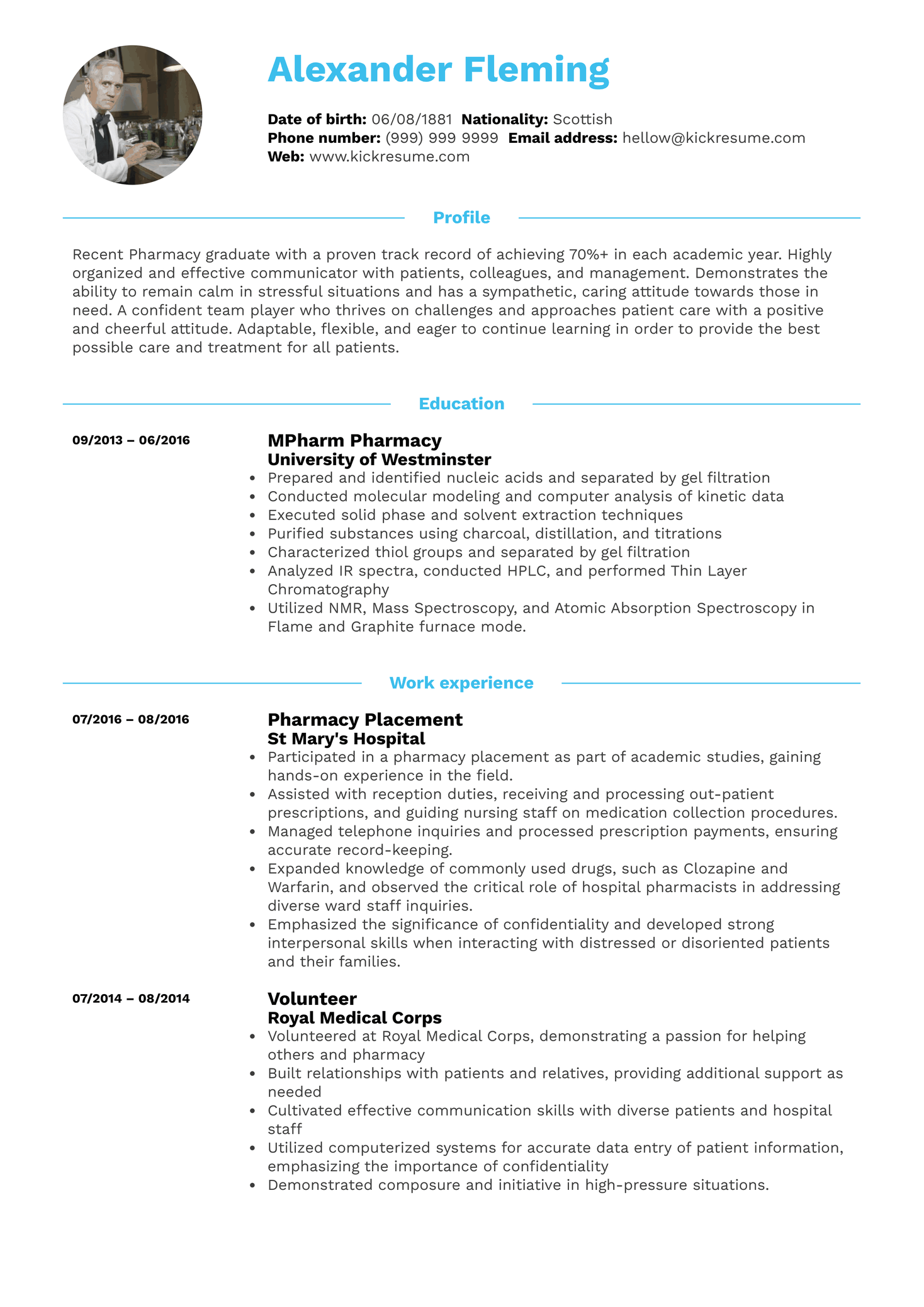As a diligent pharmacy student, you’re constantly juggling demanding coursework, clinical rotations, and perhaps even part-time work. Amidst all this, the idea of crafting a perfect Curriculum Vitae can feel like another daunting task on an already overflowing plate. Yet, your CV is more than just a document; it’s your professional handshake, your first impression, and often, your ticket to securing internships, residencies, or that crucial first job in the competitive pharmaceutical world.
It’s completely understandable to feel a bit lost when faced with a blank page. What should you include? How do you highlight your unique experiences and passion for pharmacy? That’s precisely where a well-structured CV template for pharmacy student can become your best friend. It provides a clear roadmap, ensuring you don’t miss any vital sections and present your qualifications in a professional, easy-to-read format that truly stands out to potential employers.
Crafting Your Stellar Pharmacy Student CV: Essential Sections
Building a compelling CV for a pharmacy student involves more than just listing out your academic history. It’s about strategically showcasing your skills, experiences, and potential in a way that resonates with the specific roles you’re applying for. Think of each section as an opportunity to paint a clearer picture of who you are as a future pharmacy professional. A well-organized CV not only makes a good impression but also helps Applicant Tracking Systems (ATS) recognize your qualifications, which is crucial in today’s digital application landscape.
Contact Information and Professional Summary
Start with the basics: your name, phone number, professional email address, and LinkedIn profile URL (if you have one). Ensure this information is accurate and easy to find at the top of the page. Below that, a concise professional summary or objective statement can make a huge difference. For students, an objective statement is often more appropriate, clearly stating your career goals and what you hope to achieve. This isn’t just a space filler; it’s your elevator pitch, designed to grab the reader’s attention and compel them to continue reading. Tailor this summary to the specific role, highlighting how your skills and aspirations align with their needs.
Education and Academic Achievements
This is, understandably, a cornerstone for any student’s CV. List your university or college, your degree program (e.g., Doctor of Pharmacy, Bachelor of Science in Pharmaceutical Sciences), and your expected graduation date. Don’t shy away from including your GPA if it’s strong (3.0 or higher). Beyond the basics, think about relevant coursework that demonstrates your knowledge in specific areas like pharmacology, pharmacokinetics, or patient counseling. Mention any academic honors, scholarships, or dean’s list achievements – these speak volumes about your dedication and capability. If you’ve completed any significant projects or research during your studies, this is an excellent place to briefly highlight them.

Experience: Clinical, Research, and Volunteer
Your experience section is where you demonstrate practical application of your learning. This isn’t limited to paid jobs; clinical rotations, internships, volunteer work in healthcare settings, and research projects are incredibly valuable. For each entry, include your role, the organization, location, and the dates of involvement. Use strong action verbs to describe your responsibilities and, crucially, your achievements. Instead of just saying “assisted patients,” elaborate on “Provided comprehensive medication counseling to an average of 20 patients daily, improving adherence rates by 15%.” Quantify your impact whenever possible. Even if an experience isn’t directly pharmacy-related, consider how transferable skills like teamwork, problem-solving, or communication can be highlighted.
Skills: Both Clinical and Soft
This section should be a clear, scannable list of your proficiencies. Divide them into categories if helpful. Clinical skills might include patient counseling, medication reconciliation, compounding, sterile product preparation, or familiarity with pharmacy management software. Don’t forget technical skills like proficiency in electronic health record (EHR) systems. Equally important are your soft skills: communication, critical thinking, problem-solving, attention to detail, teamwork, empathy, and time management. These attributes are highly valued in any healthcare setting and demonstrate your ability to work effectively within a professional environment.
Tailoring Your CV for Impact and Avoiding Common Pitfalls
While a CV template for pharmacy student provides an excellent framework, the real magic happens when you customize it for each specific application. Generic CVs rarely stand out in a pile of applicants. Take the time to carefully read the job description for every position you apply for. Identify keywords related to responsibilities, required skills, and desired qualifications. Then, strategically weave these keywords into your CV, especially in your summary, experience descriptions, and skills sections. This not only makes your CV more relevant but also helps it pass through Applicant Tracking Systems, which often filter candidates based on keyword matches.
Another powerful technique is to focus on accomplishments rather than just duties. Instead of merely listing what you did, explain the positive impact of your actions. Did you contribute to a project that improved efficiency? Did you help a patient understand their medication better? Quantify these achievements with numbers, percentages, or specific outcomes whenever possible. “Managed inventory for over 500 medications, reducing waste by 10%” is far more impactful than “Managed medication inventory.”
Attention to detail is paramount in pharmacy, and your CV is an early indicator of this quality. Proofread your CV multiple times for any typos, grammatical errors, or formatting inconsistencies. A single error can undermine your professionalism. Ask a trusted friend, mentor, or career services professional to review it as well; a fresh pair of eyes can catch mistakes you might have overlooked. Ensure your formatting is clean, consistent, and easy to read, with adequate white space.
Finally, remember that your CV is a dynamic document. As you gain new experiences, learn new skills, and progress in your studies, update it regularly. Keep it concise, ideally one page for students with less than five years of professional experience. By investing time in creating a thoughtful, tailored, and error-free CV, you significantly boost your chances of landing that coveted interview and taking the next big step in your pharmacy career.
